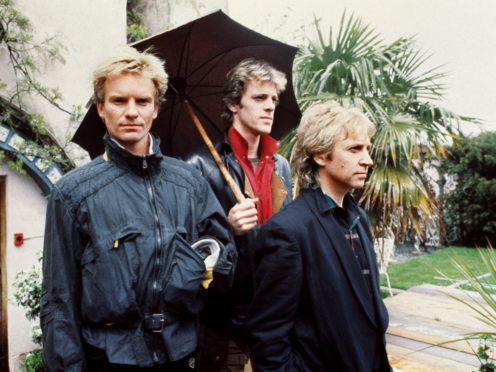The Police drummer Stewart Copeland has said his conflict with Sting was due to “honourable reasons” but the pair still avoid discussing music.
The band were notorious for their in-fighting during their time together.
Copeland has explained it was because they had drastically different musical opinions.
He told the PA news agency: “We actually get on really well because we understand what our musical differences were and they were for honourable reasons.
“The motives that we ascribed to each other when we were young were not what was going on.
“What was going on is we just have very strong profound feelings about how music should go and what it’s for, which is very different for each of us.”
The pair, who made up the band along with Andy Summers, will reunite for a new BBC documentary series about music, fronted by Copeland, in which he interviews his former collaborator and they speak for the first time about their feelings on the subject.
Copeland said: “We have argued about how to play Message In A Bottle, whether I should play a drum solo or not, whether it’s too loud, too fast, too quiet, too slow, whatever, we have argued the hell out of specific songs but not about the general subject of what it’s all about, what is music and why?
“It turns out, to my surprise, he also has been thinking about these things and had some very evolved theories on the subject.”
He added: “We don’t communicate about our music now, in fact we avoid the subject of music strenuously unless there is a BBC crew filming us talking about music in general.
“Let’s not get too specific about Can’t Stand Losing You. Although with the cameras rolling we did play Roxanne.
“It ended in tears as usual, tears of laughter, I should say. We were just pissing about and just to rattle his cage I sped it up in the time honoured tradition.
“There is one place where it stops and we have always disputed how to count that and so just for fun I counted it wrongly and there we were, back in the pigsty together again, how we laughed.”
Stewart Copeland’s Adventures In Music starts on BBC Four on January 17 at 9.30pm.
